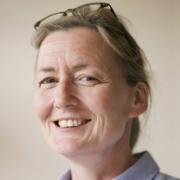Remote sensing based forest monitoring in support of current and emerging policies
This workshop is dedicated to applications of remote sensing for the support of current and emerging European policies. We encourage people to submit abstracts that focus on recent developments and pre-operational tools as well as applications. The benefits for current and emerging policies should be clearly visible. Applications building on a wide range of RS data types are welcome: satellite data, airborne and UAV-based data collections, but also in-situ observations and all combinations thereof.
The vision of this workshop is to gather the current state-of-the-art in RS to support forestry-related policies and to jointly identify remaining gaps and the way forward. Many new policies have emerged over the recent years calling for better forest monitoring data, especially in Europe. Examples are the European Union Deforestation Free Regulation, the proposed new EU Regulation on a Forest Monitoring Framework, the EU Forest Strategy, the EU Biodiversity Strategy or the Nature Restoration Law. All these policies require accurate and ideally wall-to-wall and up-to-date data on the extent and status of forests. Remote sensing has received much attention recently in this domain and many pre-operational services have evolved from scientific projects.
This session/workshop should address both – the current and emerging operational tools – as well as new frontiers in research on remote sensing based forest monitoring.
List of topics
- Biodiversity monitoring
- (Long-term) forest vitality trends
- Disturbance agent classification
- Biomass mapping
- Forest resilience
- Forest recovery
- Carbon neutrality / carbon sinks
- Restoration monitoring and support
Keynote Lecture: Advancing Remote Sensing Techniques for Comprehensive Forest Monitoring: Bridging Policy Needs and Technical Challenges

Annemarie Bastrup-Birk – University of Copenhagen
Remote sensing techniques have become increasingly crucial for implementing and monitoring forest-related policies at European and global levels. This abstract presents an overview of key policies that rely on Earth Observation (EO) data, focusing on the technical aspects of deriving essential forest indicators. The EU Forest Strategy, LULUCF regulation, and global initiatives like REDD+ require accurate quantification of forest extent, biomass, carbon stocks, and disturbances. Satellite-based approaches using optical and radar sensors enable large-scale mapping of forest cover and changes. However, deriving structural metrics like aboveground biomass remains challenging, necessitating the integration of spaceborne LiDAR (e.g., GEDI) with other data sources. Critical indicators include forest area, growing stock volume, biomass, carbon sequestration, and disturbance rates. While coarse resolution products are available globally, policy implementation often requires higher spatial and temporal resolutions. Opportunities exist in fusing multi-sensor data and leveraging time series to improve accuracy. Challenges persist in accounting for diverse forest types, ensuring consistency across scales, and quantifying uncertainties. Advances in machine learning show promise for indicator estimation, but further research is needed on transferability and robustness. This abstract will discuss state-of-the-art methods, accuracy requirements, and future directions for EO-based forest monitoring to support evidence-based policymaking.
Link to the Dr. Bastrup-Birk’s university website.
Scientific Committee of the Workshop
Loic Dutrieux, Joint Research Center, EU
Michael Förster, Technical University of Berlin, Germany
Birgitta Putzenlechner, University of Göttingen, Germany
Johannes Reiche, University of Wageningen, The Netherlands
Mathias Schardt, University of Technology Graz & Joanneum Research, Austria
Lars Waser, Swiss Federal Institute for Forest, Snow and Landscape Research – WSL, Switzerland
Piotr Wezyk, University of Agriculture in Krakow, Poland
Katarzyna Zielewska-Büttner, Forstliche Versuchs- und Forschungsanstalt, Germany
Annemarie Bastrup-Birk, University of Copenhagen, Denmark;
Organisers
Manuela Hirschmugl – University of Graz, manuela.hirschmugl (at) uni-graz.at
Janik Deutscher – Joanneum Research, janik.deutscher (at) joanneum.at
